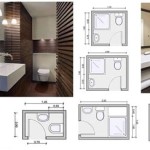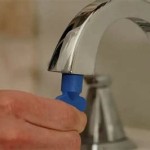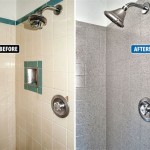How Much Does It Cost To Install New Bathroom Flooring?
The bathroom, despite often being one of the smaller rooms in a house, plays a crucial role in daily life and contributes significantly to overall home value. Bathroom renovations, including flooring upgrades, are a frequent home improvement project. Understanding the costs associated with new bathroom flooring is essential for budgeting and planning a successful renovation.
The cost of installing new bathroom flooring is influenced by a variety of factors, making it a project with a potentially wide price range. These factors include the type of flooring material selected, the size and layout of the bathroom, the complexity of the installation process, and regional labor rates. Additionally, unforeseen issues, such as subfloor damage or the need for plumbing adjustments, can impact the final expense.
Flooring Material Costs: A Breakdown
The material cost is typically the most significant variable in the overall cost of bathroom flooring installation. Different flooring materials possess vastly different price points, durability characteristics, and aesthetic qualities. The following provides a detailed breakdown of common bathroom flooring materials and their approximate cost ranges, including both material and installation unless otherwise indicated.
Vinyl Flooring: Vinyl flooring is a popular choice due to its water resistance, affordability, and ease of installation. Sheet vinyl is generally the least expensive option, costing approximately $2 to $6 per square foot installed. Luxury vinyl tile (LVT) and luxury vinyl plank (LVP) offer greater aesthetic appeal and durability, with costs ranging from $4 to $10 per square foot installed. The cost can increase further with more complex patterns or high-end brands.
Tile Flooring: Tile is a classic and highly durable option for bathroom floors. Ceramic tile is the most affordable type of tile, costing typically $5 to $15 per square foot installed. Porcelain tile, known for its superior water resistance and durability, generally costs between $8 and $25 per square foot installed. Natural stone tile, such as marble or slate, provides a luxurious look but comes with a higher price tag, ranging from $15 to $50+ per square foot installed. These costs reflect the higher material price and the more complex installation process often required for natural stone.
Laminate Flooring: While not as inherently water-resistant as vinyl or tile, some laminate flooring options are specifically designed for bathroom use. These water-resistant laminates typically cost between $3 and $12 per square foot installed. Proper installation and sealing are crucial to prevent water damage. Cheaper laminate versions are not recommended for bathroom, as standing water can cause damage and swelling to the boards.
Engineered Wood Flooring: Similar to laminate, engineered wood flooring requires specific adaptations for bathroom use. The top layer is real wood, giving it an upscale appearance, while the core is engineered to resist moisture. Costs range from $6 to $20 per square foot installed. Ensuring proper ventilation and promptly addressing any spills are necessary for maintaining its longevity.
Other Materials: Other flooring options exist, but are much less frequent. These could include cork flooring, which offers a soft underfoot feel and natural water resistance, or epoxy coatings that provide a seamless, highly durable surface. Pricing for these options varies significantly based on the specific product and installation requirements, often requiring specialized installers.
Labor Costs and Installation Complexity
Labor costs represent a significant portion of the total bathroom flooring installation expense. These costs fluctuate based on geographic location, the experience of the installer, and the complexity of the job. In general, labor costs can range from $2 to $10 per square foot, but this can vary significantly.
The complexity of the installation plays a crucial role in determining labor costs. Factors that increase complexity include:
- Bathroom Size and Layout: Smaller bathrooms may seem easier, but intricate layouts with many corners and fixtures can increase labor time. Larger bathrooms naturally require more material and labor hours.
- Subfloor Preparation: The condition of the existing subfloor significantly impacts the installation process. If the subfloor is uneven, damaged, or requires repair, additional labor and materials will be needed to ensure a level and stable surface for the new flooring. This could involve patching, leveling compounds, or even complete subfloor replacement.
- Fixture Removal and Reinstallation: Removing and reinstalling toilets, vanities, and other bathroom fixtures adds to the labor time and costs. Some installations may require a plumber to disconnect and reconnect plumbing fixtures, which incurs additional expenses.
- Pattern and Design Complexity: Intricate tile patterns, such as herringbone or basketweave, require more precise cutting and placement, thus increasing labor costs. Similarly, large-format tiles can be more challenging to handle and install.
- Existing Flooring Removal: Removing old flooring can be labor-intensive, especially if it is glued down or difficult to remove. Disposal of the old flooring may also incur additional fees.
When obtaining quotes from contractors, it is essential to inquire about the scope of work included in the estimate. A detailed estimate should outline all aspects of the installation process, including demolition, subfloor preparation, flooring installation, and fixture removal/reinstallation. It's also crucial to confirm whether the estimate includes disposal fees for the old flooring and any waste materials.
Additional Costs to Consider
Beyond the material and labor costs, several other expenses can contribute to the overall cost of installing new bathroom flooring. Failing to account for these additional costs can lead to budget overruns and unexpected expenses.
Subfloor Repair or Replacement: As mentioned previously, subfloor issues can significantly impact the overall cost. If the subfloor is damaged by water or rot, it may require repair or even complete replacement. Subfloor repairs can range from $100 to several hundred dollars, while complete subfloor replacement can cost $500 or more, depending on the size of the bathroom and the extent of the damage. This represents one of the more unpredictable costs.
Plumbing Adjustments: In some cases, new flooring may require adjustments to plumbing fixtures, such as toilets or vanities. For example, if the new flooring is thicker than the old flooring, the toilet flange may need to be raised to ensure a proper seal. These plumbing adjustments can add to the overall cost of the project.
Baseboard and Trim Installation: New baseboards and trim can enhance the finished look of the bathroom floor. The cost of baseboards and trim varies depending on the material and style selected. Installation costs can also contribute to the overall expense.
Sealing and Waterproofing: Proper sealing and waterproofing are essential for protecting bathroom flooring from moisture damage. The cost of sealants and waterproofing materials is generally minimal, but professional application can add to the overall expense. This is particularly important around toilets, showers, and tubs.
Permits: Depending on local regulations, a permit may be required for bathroom renovations, including flooring installations. Permit fees can vary, but they are typically a relatively small percentage of the overall project cost.
Unexpected Issues: It's prudent to budget for unexpected issues that may arise during the installation process. These could include hidden plumbing leaks, electrical problems, or the discovery of asbestos-containing materials. Having a contingency fund can help mitigate the impact of these unforeseen expenses.
Thorough planning, detailed estimates, and realistic budgeting are crucial for a successful bathroom flooring installation project. Obtaining multiple quotes from qualified contractors and carefully considering all potential costs can help ensure that the project stays within budget and meets expectations. Addressing potential issues upfront by thorough inspection and assessment can also mitigate some of the unplanned costs.

Cost To Tile A Bathroom Floor Average Install Tiles

What S The Cost To Install Bathroom Floor Tiles In Tucson

Cost To Install Tile The Home Depot

What S The Cost To Install Bathroom Floor Tiles In Tucson

Ceramic Tile Flooring Installation Cost Fixr

Average Cost To Remodel A Bathroom In 2025 Badeloft Usa

How Much Does Flooring Installation Cost 2025

What Is The Average Cost To Install Tile Floors Rubi Blog Usa

Bathroom Flooring Ideas The Home Depot

How Much Does It Cost To Retile A Shower 2025
Related Posts







